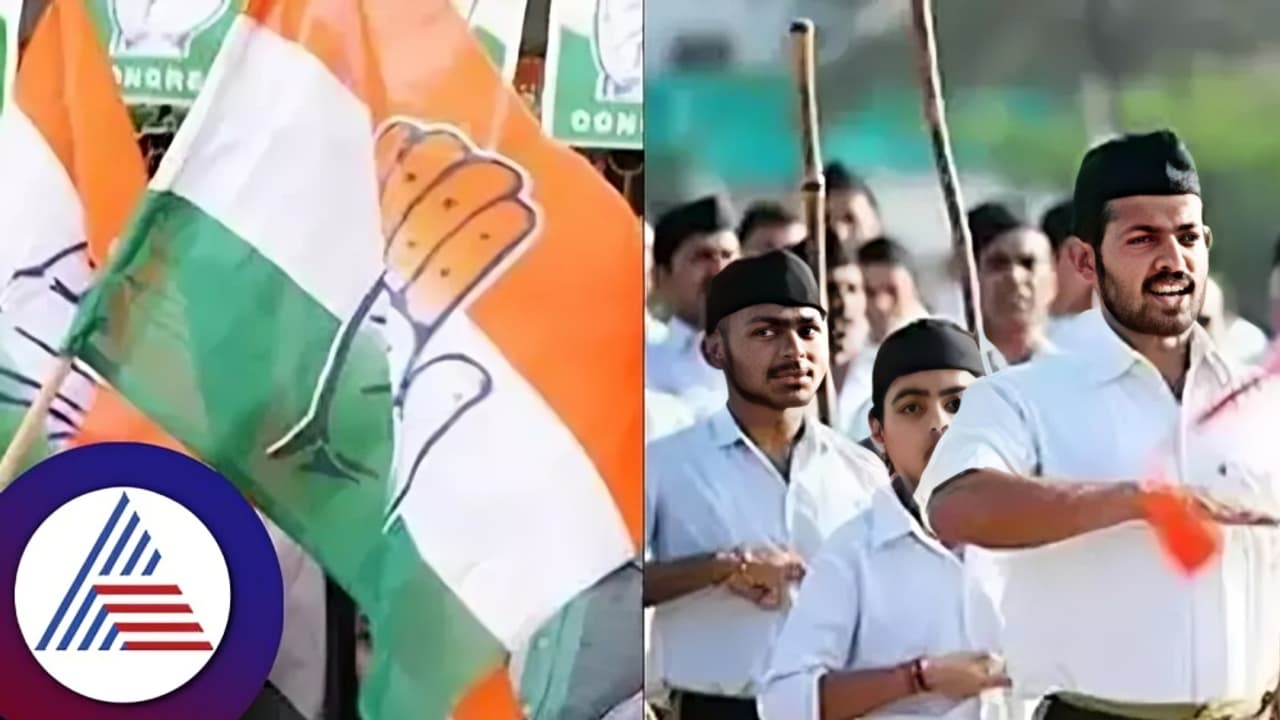In 1984 Lok Sabha election, RSS reportedly held secret talks with Rajiv Gandhi’s Congress, leading to its cadre backing the party despite BJP presence. 6 meetings took place, including at liquor baron Kapil Mohan’s home. Congress won record 414 seats
The early 1980s in India were deeply unstable. After the Indira Gandhi-led government eventually faced the backlash of the Emergency (1975-77) and the Janata governments that followed, the political scene was fragmented. When Indira Gandhi was assassinated in October 1984 by her Sikh bodyguards, the country was plunged into shock. Her son Rajiv Gandhi was immediately sworn in as Prime Minister, and a snap general election was announced for December 1984.
In this cloud of grief and change, the Congress faced a challenge, but it also found an opportunity. According to multiple accounts, the RSS, which had its own complex relationship with the Congress and the emerging Bharatiya Janata Party (BJP), chose in this instance to support the Congress. The result: the Congress won a record 414 Lok Sabha seats with over 49% vote share, its highest ever.
Secret meetings and a surprising alliance
What made this support notable were reports of secret meetings between Rajiv Gandhi’s circle and the RSS leadership. According to reports, at least six clandestine meetings were held ahead of the polls. One such meeting took place at the residence of liquor baron Kapil Mohan in New Delhi, as mentioned in NDTV piece. It was here that key RSS functionaries, especially Bhaurao Deoras (brother of then-RSS chief Balasaheb Deoras), met Rajiv’s emissaries.
An article by RSS ideologue Nanaji Deshmukh in Pratipaksh magazine on 25 November 1984, titled Moments of Soul Searching, praised Indira Gandhi after her death and called for supporting Rajiv. Deshmukh wrote, “Indira Gandhi ultimately did secure a permanent place … as a great martyr. … She alone could run the decadent political system of our corrupt and divided society.”
That an ideologue of the RSS would publicly bless a Congress leader during an election year is remarkable. It suggests a carefully calculated move rather than mere goodwill.
Why did the RSS back Congress, and not the BJP?
To understand this, we must consider the political context. The BJP was formed in 1980 and at that time had limited national reach. The RSS, meanwhile, was exploring various strategic options. Some analysts say the RSS felt the BJP was still weak and heavily upper-caste in its base; the Congress, however, could deliver broader reach.
The report also suggests that the RSS saw in Indira Gandhi, and by extension Rajiv, a possible partner in the Hindu nationalist cause under a different label. Deshmukh’s article noted how the RSS regarded Indira as “bahut badi Hindu hai (a great Hindu).”
In exchange, the RSS hoped to regain or increase its organisational space and influence. The support went beyond rhetoric, it was tactical.
What both sides gained
For the Congress, the backing of the RSS meant access to a large network of Sangh cadres and the Hindu nationalist vote at a moment of national shock. It helped the party dominate the polls. For the RSS, the Congress years offered breathing space, organisational expansion and avenues into new social territory where BJP was not yet dominant.
Analysts say this alliance laid some of the groundwork for the BJP’s future rise. The RSS used the era to consolidate its influence, which it later channelled into the BJP’s growth.
From alliance to opposition: How the stand changed
Fast-forward to 2025, and the relationship between Congress and the RSS has changed dramatically. Congress leaders now criticise the RSS sharply, and some have called for bans on its activities on public premises (for example in Karnataka). Meanwhile, the BJP and RSS are closely aligned, dominating the political space. This reversal of roles underscores how political alliances evolve with time and strategy.
The legacy of 1984 in today’s politics
The 1984 election remains one of India’s most remarkable: the Congress’s highest vote share, the largest seat tally, and an unexpected set of supports behind it. It also remains controversial because it followed the anti-Sikh riots. The role of the RSS in that period continues to be debated. Some documents and articles suggest ideological sympathy with the riots, which is one reason this episode still sparks intense scrutiny.
What happened in 1984 shows that political lines are sometimes less fixed than they appear. In that year, at a moment of crisis, the RSS backed the Congress, not the BJP, through a set of secret meetings and ideological shifts. It was a strategic alliance with long-term consequences for Indian politics. Today’s landscape looks very different, but the legacy of that alliance still echoes.
